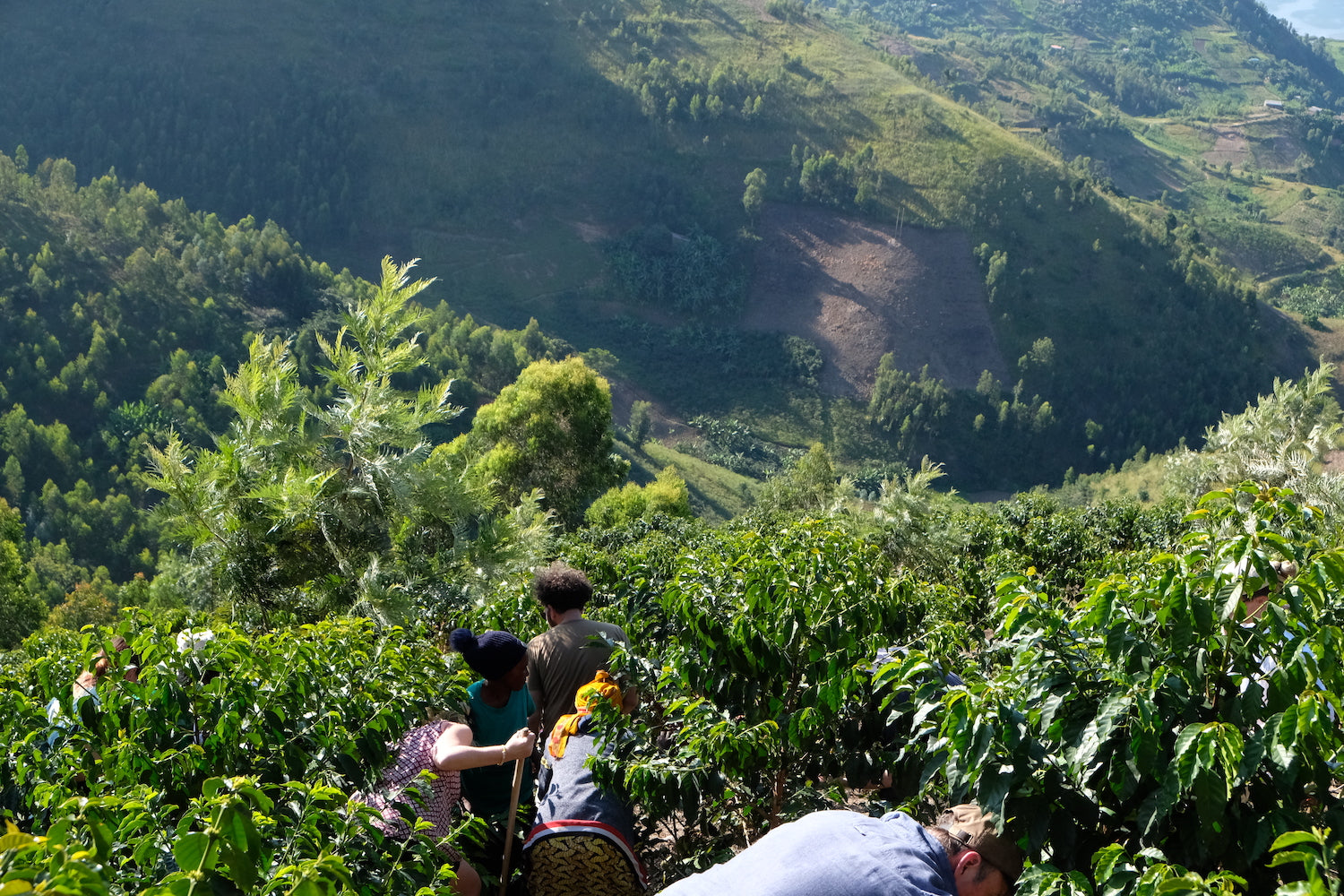
Rwanda
MASL - 1800 - 2000
Usual processing methods - Natural
Limited Edition Rwanda Natural
This coffee comes from Mukama washing station in Mukama sector,
Nyagatare district ,in Rwanda's Eastern Province. The washing station is
managed by Jean Nepo Mukotanyi and the 10 contributing farmers are
members of Akagera Coffee Project Ltd. These farms are amongst the
newest established in Rwanda with the oldest having been planted in only
2010. Education is a core value of the Akagera Coffee Project and 20%
of their net income is invested directly into community education
initiatives.
This information is from the importer we have partnered with to source this coffee, Convoya.
Speciality Coffee in Rwanda
Rwanda has a long agricultural history, even now roughly 75% of the land mass is used for farming.
As with many African coffee growing countries, coffee here was originally planted as a cash crop. In the 1930s, Belgian colonialists imposed strict mandates and high taxes on farmers, effectively enslaving them to the industry.
Coffee continued to be a major crop throughout Rwanda's more recent history. By the 1990s it was a major export for the country, although, in the main, low quality commodity coffee. The national tragedy of the 1994 genocide had a devastating impact on the country, nearly 1 million people lost their lives. Those who survived had to pick up the pieces of their shattered communities over the following decade, rebuilding the country as a whole but also the crucially important agricultural industry.
Alex visited Rwanda in April 2024 on a trip organised by Omwani, a York based green coffee importer who have built relationships with growers and washing stations all over East Africa. You can read more about his experience here but in short, Alex was blown away by Rwanda's resilience, their confrontation of the genocide - which saw neighbour turn on neighbour and survivors having to live alongside people who participated in the violence - and their determination to never let it happen again.
Agriculture remains hugely important to Rwanda's success. Speciality coffee itself has been instrumental in rebuilding the sector. In the early 2000s the Rwandan government incentivised farmers to grow speciality grade coffee. Since then, their market has grown considerably and Rwanda is recognised as producing delicious, high quality arabica coffees.
We buy coffee from various farms, cooperatives and washing stations in Rwanda. On his trip Alex visited Rwamatamu, a family owned farm near the shores of Lake Kivu. Their story is super cool. Coffee is a great partner crop and had been grown at Rwamatamu for years, being sold for bottom dollar. The owners' daughter, Berenice, went to study at Middlesbrough, found herself a job at Rounton Coffee and discovered the enthusiasm of coffee geeks. She began feeding back consumer information to her family and over time, Rwamatamu has completely changed their coffee offerings.
Here the link between grower, importer, roaster and end consumer becomes incredibly important. The folks at Omwani know that smaller operations can only risk new coffee varietals and processing methods if they have ongoing support. The Omwani method of transparent trade is to build relationships with coffee growing communities and commit to buying, for example, three years worth of crops. This gives the growers confidence to invest the time and effort needed to try new things. Moving from exclusively washed coffees to natural processing is a big leap of faith and communication is key. The better coffee producers understand the kind of flavour profiles that end consumers are looking for, the more confident they can be in their decisions.
Rwamatamu is inspiring in many ways. Their farmland is set in a breathtaking part of Rwanda, the photo above is from Alex's visit there. They have embraced the speciality coffee market and produce spectacular coffees but they are also committed to sharing their knowledge with their community. Half of the coffee processed at Rwamatamu is grown on their land and the rest is bought from local smallholders. They have recently established a model farm to help growers in the area learn how to organise their coffee trees, when and how much to prune - basically how to get the very best out of their land. Rwamatamu gifted this land to a women's cooperative to farm and have established a Young Farmers' Project teaching young people how to set up their own coffee farms. Its absolutely magical!
Find out more about how we are helping these initiatives here.
,
